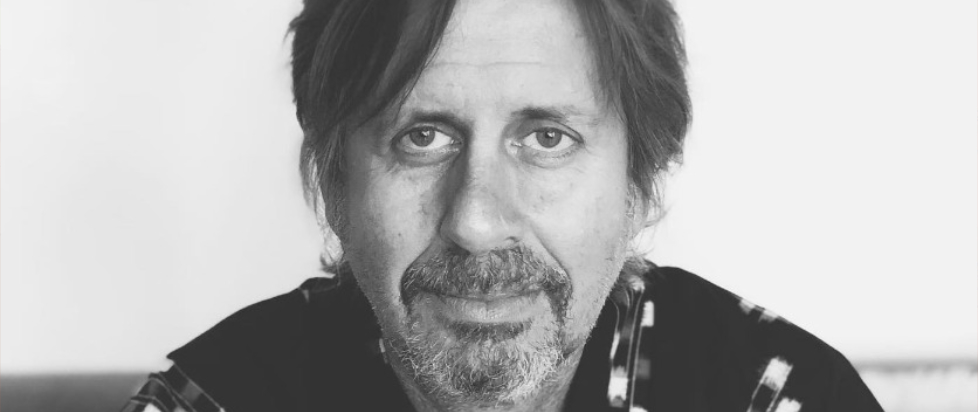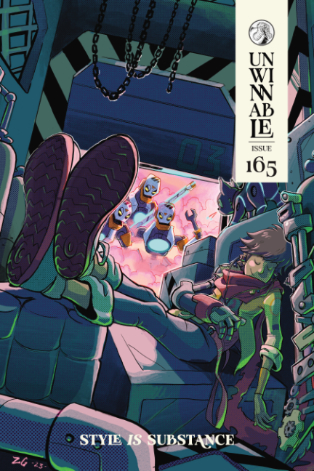
Why Does it Hurt

This column is a reprint from Unwinnable Monthly #165. If you like what you see, grab the magazine for less than ten dollars, or subscribe and get all future magazines for half price.
———
Wide but shallow.
———
Yesterday I changed the strings on my Telecaster for the first time in too long. It was my dad’s guitar, and he said you didn’t really have to change strings too often unless you’re on tour sweat-rusting through ‘em every night. But the old strings were under-oiled, grimed black on the higher ones and too heavy a gauge. I had it in my head that I should be playing lower, chunkier, big hertz be damned, but this old Tele wasn’t built for drop C. I put some nine’s on there and it’s twinkling like a Midwest emo TikTok, though that’s not really how I play.
Despite learning on this guitar from my dad, himself a honky tonk journeyman throughout the mountainous and plains states, I never really locked into his style. I have too few videos of him playing but what I’ve got has him at his finger-pickin best, every finger earning its wage. But grunge already had its hooks in me, my first CDs being Local H, Smashing Pumpkins, Rage Against the Machine and the like, sizzling me all up in cast iron, coated in grit. My dad didn’t quite understand, though he always encouraged.
He died too young, though not as young as Rick Froberg, who was lost in early July at 55. Singer, guitarist and illustrator as well as a devoted friend, uncle, brother and more, Rick’s contributions to music and art have rippled across the world, as the tributes online in the wake of his passing show. Personally, his work has rooted into my own tastes in music and art since I first encountered it, and his band Hot Snakes in particular showed me exactly what I wanted to do with guitar and wished I could do with my voice. Soon I learned that Rick regularly used a Telecaster, and from there my fathers in music had merged. It was clear that where my dad introduced me to the guitar as a musical instrument, Rick unleashed the sound I’d be chasing for the rest of my life.
Rick’s lyrics are often obtuse, sarcastic and dark but also always hilarious and biting, never snide nor cruel. Whether he’s dreaming of being a hamburger, cutting off his hands, boosting SoCal or singing a lot of songs about death, he was constantly pitting a sardonic distrust of the world’s bullshit against the joy of downstrokes, the howl of life in the face of its many trials petty and otherwise. His illustration work flitted in a similarly comic-infused surreal realm, twisting ink-splashed toons through elaborate diagrams and paste-ups. It fed Pettibon through Felix the Cat and beyond, rummaging through the ashes of punk to find that old ember and reinvigorate it.

I was audacious enough, as a grad school lit mag editor, to email Rick out of the blue to ask if we could publish some of his drawings and even use one as an issue cover with no real money to offer. His willingness to entertain me was overwhelming then and it’s always been a highlight of my life, though again given how many people have spoken of the enormity of his generous spirit it’s hardly a surprise. But his art ruled, and it was an honor to share it with an audience that might not have otherwise run in punk circles, which he quickly outgrew but never looked down upon.
It’s impossible to talk about Rick without his life-long creative partnership with guitar guru John Reis, his brother in guitar in Pitchfork, Drive Like Jehu and Hot Snakes. John broke the news about Rick’s passing online and it truly feels like the loss of a brother, their guitar-playing so intertwined so as to feel like one. His strumming will go on but there will be a hollowness, the missing response to his Les Paul’s calls. His loss is our loss but felt more keenly I’m sure, and I hope he’s hanging in there and seeing the love for his friend.
Now more than ever I have the Telecaster cleaned up and ready to channel the spirits of my guitar forebears, both taken too soon. I’m thankful for Rick and the records he left behind, may they be found by those kids he sang about despising for decades to come.
———
Levi Rubeck is a critic and poet currently living in the Boston area. Check his links at levirubeck.com.




